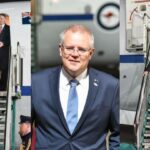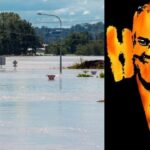The Electorate Has Spoken: Albanese Must Work with Progressives on Climate

Prime minister Anthony Albanese has vowed to end the “climate wars”, which is in stark contrast to former leader Scott Morrison, whose stance on fossil fuels and emissions over his term in office resulted in our nation cast as one of the planet’s top climate criminals.
Yet, while the climate policy Labor is set to roll out is an improvement on the last government’s proposal – a 43 percent emissions reduction on 2005 levels, compared with the Coalition’s policy of a 26 to 28 percent drop – it’s not nearly enough to adequately counter the climate crisis.
Newly incumbent federal climate and energy minister Chris Bowen outlined last week that the nation is just going to have to deal with that fact, because his party has drafted its climate package in such a way as to avoid any parliamentary debate or negotiations with the broadened crossbench.
Through the lens of state capture, which posits that the fossil fuel industry shapes the climate agendas of both majors behind-the-scenes, Bowen has signalled that his party will take greater action but not to the detriment of local magnates, as coal and gas expansion is still on the cards.
The Albanese government’s stance, however, fails to consider the want of the nation as expressed at the 21st of May national ballot, which saw significant numbers turning to the Greens and teal independents in an outpouring of demand for more robust and immediate action on climate.
Simply changing the curtains doesn’t work
“Labor needs to listen to the science and the electorate on climate, both are clear on the first step, which is to stop pouring fuel on the fire and stop opening new coal and gas mines,” Australian Greens leader Adam Bandt told Sydney Criminal Lawyers.
“We want to work with Labor to make them go further and faster on climate change,” he continued. “The Morrison government was a disaster on climate, but if left to their own devices, Labor won’t do what needs to be done, particularly on coal and gas.”
As Bandt has repeatedly pointed out, Labor’s emissions reduction target is accompanied by plans to greenlight the opening of 114 new coal and gas mines.
Indeed, incoming resource minister Madeline King’s first move in office was to announce support for WA’s gigantic Scarborough gas project.
The Greens want an end to coal and gas. The party’s climate policy calls for a 75 percent reduction in emissions by 2030, with net zero by 2035. And the scientists at the Climate Council consider these targets to be in line with the urgency of the climate emergency.
“The new government is not listening to what Australians said in the election and are backing massive new fossil fuel projects, like the climate bomb Scarborough gas mine,” Bandt underscored. “Opening up new gas projects is a climate crime.”
The capital’s already running green
Right after taking on the role of climate minister last week, Bowen promptly dropped it on the nation that it’s undergoing a gas crisis: a “perfect storm” left behind by the Coalition government, with locally extracted gas slated for export being unavailable to meet a spike in domestic demand.
And fresh from supporting new gas projects, King chimed in on Tuesday that the short-term fix for the gas crisis is coal. The resources minister was referring to getting a number coal-fired electricity plants back online, which have recently had maintenance issues.
However, having the newly elected government cite coal as the solution to its first major crisis in office sounds rather ominous, especially as it claims to be ending the climate wars at the same as it plans to approve dozens more fossil fuels projects.
According to Bandt, if the Albanese government “is looking for a solution to runaway energy prices, look at the ACT”, as the Greens in balance of power in the territory parliament succeeded in bringing about “a rapid transition to 100 percent renewable energy”.
The shift to green energy was overseen by then ACT climate change minister Shane Rattenbury, with the capital being officially powered by 100 percent renewable electricity since January 2020. The ACT Greens minister announced the transition to complete renewables in September 2019.
“The solution to a gas crisis is not more gas. The government’s first budget needs to give households and businesses financial support to get off gas. Methane gas and coal are both more expensive than renewables,” said Bandt, adding that in Canberra “power bills are going down right now.”
The people have spoken
The federal election was labelled a “greenslide”, which translated to 12 Green Senators and 4 MPs elected to parliament, along with 10 teal independents in the lower house and one independent in the Senate, who all primarily campaigned on tougher action on climate.
“The clearest, loudest message from the election is that Australians want change, and they’re over the major parties,” Bandt made certain. “With swings against both Liberal and Labor, it was the progressive vote for the Greens that made the difference and kicked Morrison out.”
The Greens leader asserts that the Australian constituency has delivered “a broad climate mandate from this election”, and his party, with the aid of green-minded independents, will be respecting the want of voters and pushing the government to go “further and faster” on climate.
Bowen, however, has stated that whilst he’d prefer to legislate his party’s climate targets, Labor can avoid any parliamentary negotiations on broader changes, as most of its Powering Australia climate policy can be implemented without the need to pass new bills through parliament.
Yet, despite the protestations coming from Albanese and Bowen, Bandt suggests otherwise. He’s quietly confident that a cooperative relationship with the government will be established, as the nation didn’t vote in the large progressive crossbench so that Labor could just ignore it.
“The PM needs to work with the crossbench to pass legislation,” the Greens leader concluded, “and they need to listen to the scientists, to communities who have suffered from the bushfires, and to our Pacific neighbours, all of whom are calling for greater climate action and no new coal or gas.”
Image: Official portrait of Australian Prime Minister Anthony Albanese by the Australian government is licensed under CC BY 4.0







